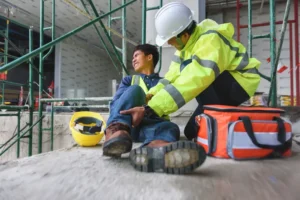Every relationship goes through seasons — joy, stress, passion, silence, connection, distance.
Sometimes you work through challenges together. Other times, it feels like you’re speaking different languages — arguing over small things, avoiding big things, or growing apart without knowing why.
That’s where couples therapy and couple counselling can make a profound difference.
But what’s the difference between the two? When should you consider it? And how do you know if your relationship truly needs outside support?
Let’s dive into what these terms mean and how they can help you move from confusion to clarity — together.
What Is Couples Therapy?
Couples therapy is a structured form of psychotherapy that focuses on identifying and resolving recurring patterns that cause distress in a romantic relationship.
It’s typically guided by a licensed therapist trained in specific relationship frameworks like:
- Emotionally Focused Therapy (EFT)
- Gottman Method Couples Therapy
- Cognitive Behavioral Therapy for couples
- Attachment-based approaches
Couples therapy is ideal when:
- Arguments feel circular and unresolved
- Trust has been broken (due to infidelity or secrecy)
- There are intimacy or sexual disconnection issues
- Emotional needs are not being met
- You’re considering separation but want to explore saving the relationship
Unlike casual advice from friends or family, couples therapy provides a safe, neutral space where both partners can speak, listen, and grow with the help of an expert.
What Is Couple Counselling?
While often used interchangeably with couples therapy, couple counselling tends to be more short-term and focused on communication, understanding, and practical tools.
Think of it as relationship coaching with a therapeutic foundation.
It’s typically used for:
- Pre-marital counseling or early relationship support
- Navigating cultural or religious differences
- Improving day-to-day communication
- Setting shared goals and boundaries
- Coping with external stressors (career, parenting, finances)
While couples therapy often goes deeper into emotional roots and trauma, couple counselling is more present-focused and solution-oriented.
How to Know If You Need Outside Help
It’s a myth that only “broken” couples need therapy or counseling.
Here are some signs your relationship could benefit:
- You’re arguing more frequently or more intensely than before
- Small issues escalate quickly and often feel unresolved
- You’re not feeling emotionally safe or supported
- You’re physically present but emotionally distant
- You want to improve, but don’t know how
Sometimes, it’s not about crisis — it’s about maintenance. Just like we go for health check-ups or financial planning, our relationships also need intentional nurturing.
Whether it’s through couples therapy or couple counselling, reaching out for help is an act of courage — and of love.
The Benefits of Couples Therapy and Couple Counselling
Here’s what couples often gain from working with a professional:
| Benefit | Couples Therapy | Couple Counselling |
| Understanding root causes | ✅ In-depth emotional pattern recognition | ✅ Helpful overview of behavior triggers |
| Communication improvement | ✅ Conflict resolution techniques | ✅ Day-to-day communication tools |
| Rebuilding emotional trust | ✅ Focused interventions for betrayal | ❌ Limited — trust work is deeper therapy |
| Goal setting for the future | ✅ Often explored post-healing | ✅ Core focus of early sessions |
| Safe expression of emotions | ✅ Encouraged through structured models | ✅ Encouraged through reflection tools |
Many couples start with couple counselling, and later transition into couples therapy if deeper issues come up.
What Happens in a Typical Session?
You don’t need to come with all the answers. You just need to come willing.
Here’s what to expect:
- Joint intake: The therapist listens to both partners’ perspectives on the relationship.
- Assessment: Patterns, communication styles, and emotional needs are mapped out.
- Goal setting: You define what success looks like together.
- Techniques & exercises: You’ll learn new ways of listening, expressing, and reconnecting.
- Homework: Yes — most professionals give you practices to try between sessions.
Whether you’re attending in person or online, sessions are always confidential, neutral, and designed to help both people feel heard and supported.
Can These Approaches Save a Failing Relationship?
Let’s be real — not every relationship can (or should) be saved.
But here’s what couples therapy and couple counselling can do:
- Bring hidden resentments into the open
- Improve conflict resolution without blame
- Help both partners take accountability
- Clarify what each person truly wants
- Create a path to healing — whether that’s together or apart
Sometimes, therapy helps people stay together with more understanding.
Other times, it helps them separate with more compassion.
Either way, it’s progress.
Do You Need to Wait Until It’s “Bad”?
Absolutely not.
In fact, the earlier couples seek help, the better the outcomes. Studies show that couples often wait 6 years after problems begin to seek therapy — by then, resentment can be deeply rooted.
Instead, consider couple counselling as emotional preventative care.
Just like you’d take your car in for a service, your relationship deserves the same check-in and care — even if everything looks “fine” on the outside.
Online Options Are Making It Easier Than Ever
Don’t want to go to a clinic? You’re not alone. Online platforms now offer both couples therapy and couple counselling with licensed experts — all from the comfort of your home.
You get:
- Flexible scheduling for busy couples
- Video or audio-based sessions
- Affordable pricing plans
- Multilingual support across India
- Confidential and secure platforms
So if logistics were your biggest reason for delay — consider that obstacle removed.
Final Thoughts: Investing in Your Relationship Is Never a Waste
You’ve invested in careers, homes, and education — so why not your relationship?
Whether you’re navigating early dating, marriage struggles, parenting tension, or emotional distance — seeking help isn’t weakness. It’s wisdom.
And with professional support through couples therapy or couple counselling, you don’t have to face the hard parts alone.
The next version of your relationship — the healthier, stronger, more connected version — is just one brave step away.
Read more: Robot Pool Cleaner: Is There a Cordless Robotic Pool Cleaner?










